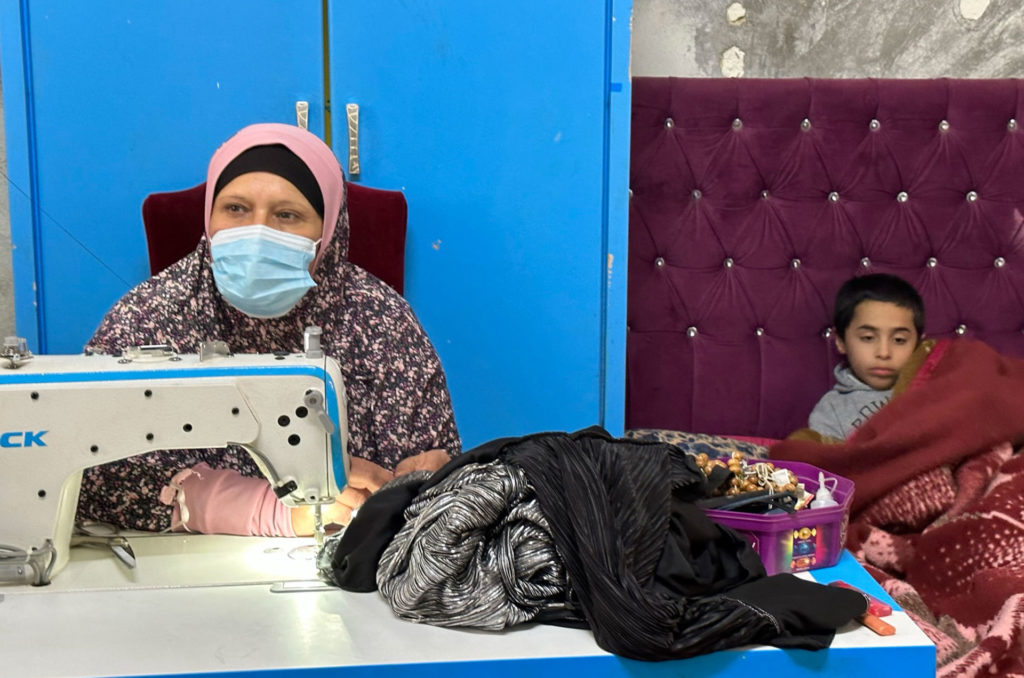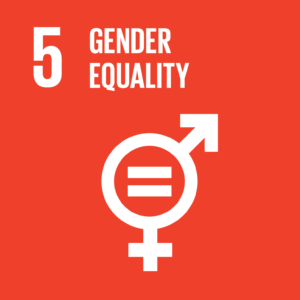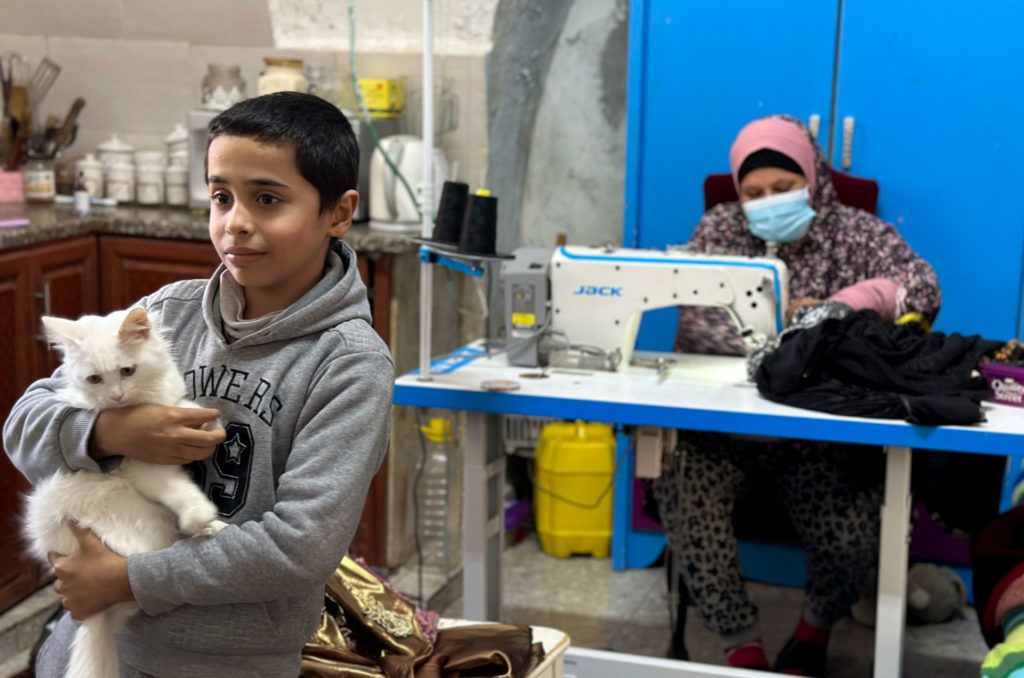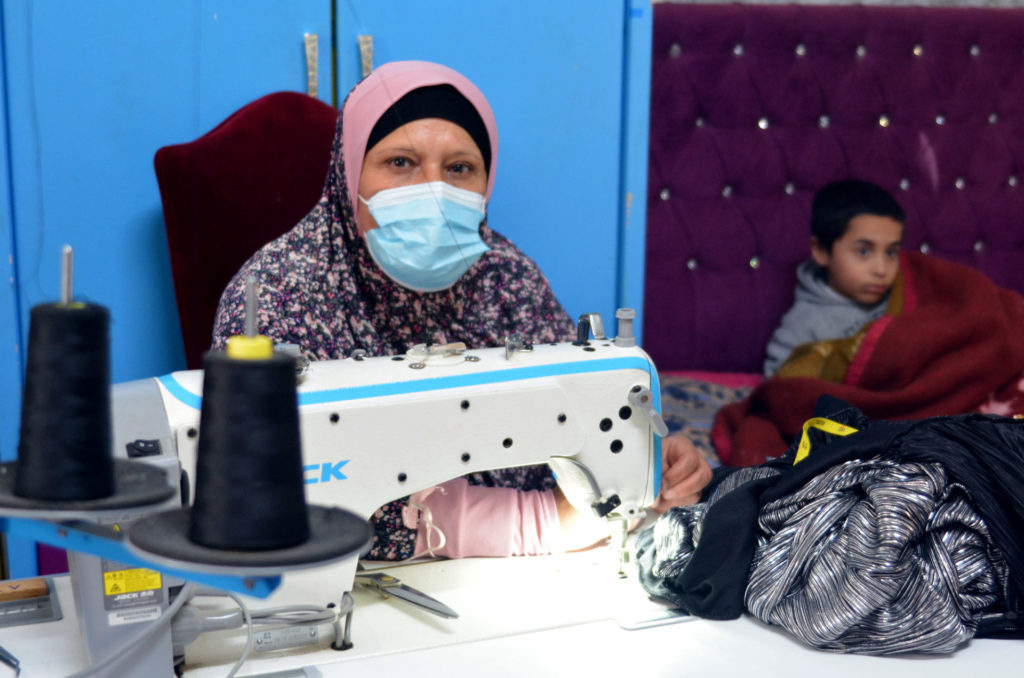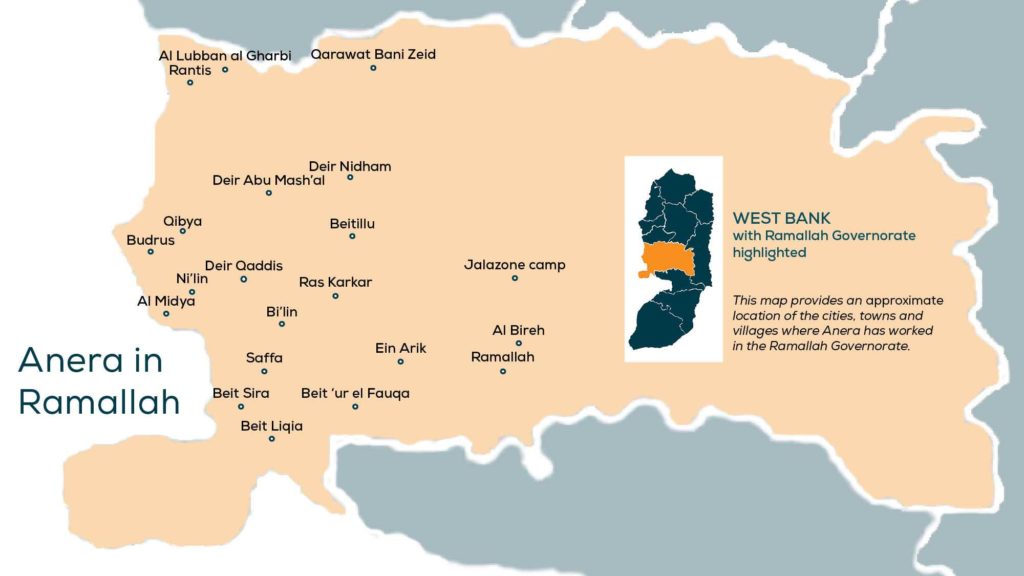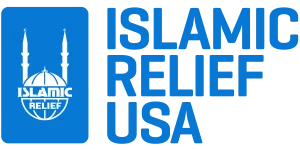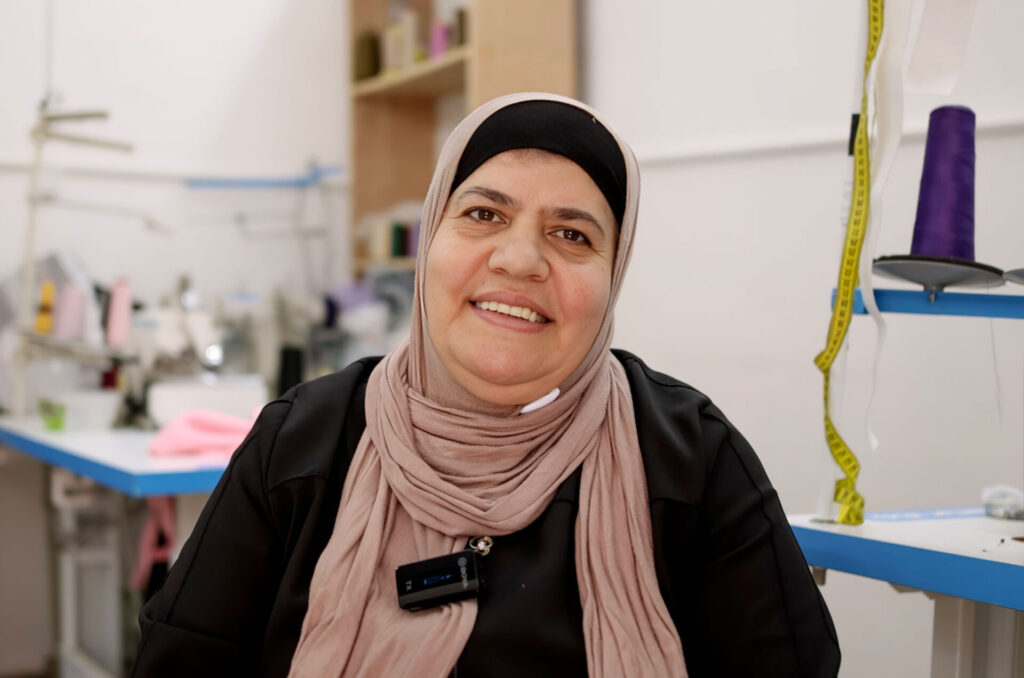Feb, 2023
Supporting Small Businesses Run by Women Heads of Households in Palestine
An outside visitor to homes in rural villages in the West Bank may immediately notice the depth of poverty many families experience.
Ruqayya is a tailor in one such village. Her sewing workroom is humble, but for her it is a place of satisfaction. “My sewing space is my happy place,” Ruqayya says. She has dreamed of running a sewing business since she was 16.
Her workroom is inside her home in Qarawat Bani Zeid, a village 22 kilometers northwest of Ramallah. The fifty-year-old is actually a native of Yatta, in Hebron, well to the south. How she came to live here, far from her extended family, is an unhappy tale.
While she speaks, she polishes one of the two sewing machines Anera provided to her through Women Can to support her business. Women Can is generously funded by Islamic Relief USA.

“My sewing space is my happy place.”
Ruqayya discovered sewing at a young age courtesy of her mother. “She had a small sewing machine. One day she caught my curious eye and asked me if I wanted to try. So she let me sew something. I immediately fell in love with sewing.”
Unfortunately, love was not part of the picture when it came to her marriage. Her father arranged for her to marry a much older man that lived many miles distant from her hometown.
Still a teenager, Ruqayya took a training course on sewing. But despite her aspirations, she found her career dreams on hiatus. “I always had the gift of sewing,” she notes, “but never had the money to do anything with my talent.”
Thirty years and three kids later, the impossible happened: her husband walked out on her. When he left, she felt as if he took everything with him.

“I always had the gift of sewing, but never had the money to do anything with my talent.”
It was also a reminder of the dark times in her childhood. Growing up in a poor family, Ruqayya often watched her mother struggle to get the money to buy milk and other basic needs.
“After the father of my children abandoned us, I would go to neighbors and ask for five shekels to buy bread for my three children. It was that bad. It was like watching my childhood all over again.”

"I would go to neighbors and ask for five shekels to buy bread for my three children. It was that bad."
She took whatever work she could find — occasionally handmade embroidery work, but mostly housekeeping jobs.
She had never believed that the women crying themselves to sleep in television dramas were realistic. Now she understood.
“It wasn’t just the fear of the unknown, it was being scared that I would fail to provide for my children,” she says.

“It wasn’t just the fear of the unknown, it was being scared that I would fail to provide for my children.”
“Laughing about it has not made getting over my forced marriage any easier. However, it helps. But not as much as sewing,” she says while deftly threading the machine with her left hand and holding the thread taut with her right.
Thanks to her own hard work and determination and with the Women Can program providing material support, trainings and guidance for her new business, Ruqayya no longer has to clean houses or ask neighbors for money. Ruqayya is now a household name in her village, and she can now rely on her earnings to provide for her family.
“In an average month, I get 40 to 50 clients, mostly needing tailoring for their pants, shirts and coats. And sometimes I even make customized dresses for special occasions, especially during the summer months,” she says.
This business has helped Ruqayya generate more income for her family, and revealed her strength and resilience. “I am making enough money all by myself now to maintain my household,” she says. “It is such a powerful feeling of freedom to no longer feel trapped and helpless.”
“I’m on the right path with my new business. And soon I’ll be expanding to add traditional thobe dresses to my product line. I’m doing what I love and providing even more for my children and giving them the best education.
“Looking back, my husband’s departure was the best thing that could have happened to me. It taught me that no matter what life throws at you, a woman with a mission is unstoppable. But this lesson was especially important for my daughters, because it gave them a crash course on independence in what remains a patriarchal society,” she adds.
COMMUNITY
Strengthening Ties
In the towns and refugee camps of Palestine and Lebanon, the fabric that holds many communities together is threatened by poverty, conflict and isolation. Our programs improve family livelihoods by creating work opportunities and help women entrepreneurs start and build up small businesses that support whole families.

"No matter what life throws at you, a woman with a mission is unstoppable.... this lesson was especially important for my daughters."
This program is funded by Islamic Relief USA
The views expressed herein are those of Anera and shall not, in any way whatsoever, be construed to reflect the official opinion of IRUSA, its Islamic Relief affiliates, or its donors.
